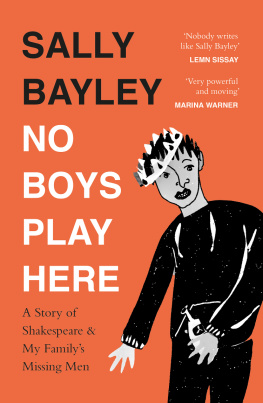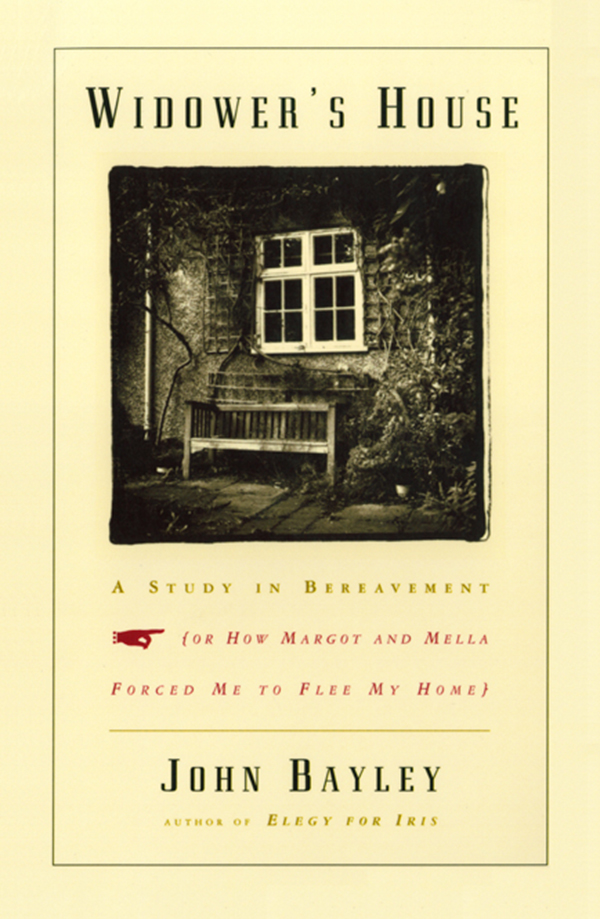Bayley - Widowers House: A Study in Bereavement, or How Margot and Mella Forced Me to Flee My Home
Here you can read online Bayley - Widowers House: A Study in Bereavement, or How Margot and Mella Forced Me to Flee My Home full text of the book (entire story) in english for free. Download pdf and epub, get meaning, cover and reviews about this ebook. year: 2001, publisher: W. W. Norton & Company, genre: Science fiction. Description of the work, (preface) as well as reviews are available. Best literature library LitArk.com created for fans of good reading and offers a wide selection of genres:
Romance novel
Science fiction
Adventure
Detective
Science
History
Home and family
Prose
Art
Politics
Computer
Non-fiction
Religion
Business
Children
Humor
Choose a favorite category and find really read worthwhile books. Enjoy immersion in the world of imagination, feel the emotions of the characters or learn something new for yourself, make an fascinating discovery.

- Book:Widowers House: A Study in Bereavement, or How Margot and Mella Forced Me to Flee My Home
- Author:
- Publisher:W. W. Norton & Company
- Genre:
- Year:2001
- Rating:5 / 5
- Favourites:Add to favourites
- Your mark:
Widowers House: A Study in Bereavement, or How Margot and Mella Forced Me to Flee My Home: summary, description and annotation
We offer to read an annotation, description, summary or preface (depends on what the author of the book "Widowers House: A Study in Bereavement, or How Margot and Mella Forced Me to Flee My Home" wrote himself). If you haven't found the necessary information about the book — write in the comments, we will try to find it.
A hilarious comedy of errors and a delightful love story by Englands most improbable sex symbol.
Little did retired professor John Bayley realize when he lost Iris Murdoch, his beloved wife of forty-four years, that life would never be the same again. First came thousands of sympathy notes from lovers of Murdochs novels and fans of Bayleys own poignant memoir, Elegy for Iris. But more alarming were the hundreds of calls from seemingly well-meaning women, many of whom rang Bayleys doorbell in Oxford, bearing cakes, casserole dishes, and delivering pep talks designed to cheer up the widower of their dreams.Here, in Widowers House: A Study in Bereavement or How Margot and Mella Forced Me to Flee My Home, Bayley tells the painful, inspirational, and ultimately uplifting story of how he had to grapple with his fate as a man by beginning life anew in his mid-seventies. Like millions of other widows and widowers, Bayley, as he relates it, found himself emotionally unprepared for the responsibilities and burdens that confront people who suddenly find themselves alone. He hadnt realized how differently you are treated when you are not part of a couple, and how you must learn to respond to friends, family members, and total strangers in completely different ways.
With the reassuring, compassionate voice of Iris still a mournful obbligato in the background, Bayley describes the pitfalls a widower must face as he ventures out into the newly virgin world beyond his front door. Finding comfort in recording the day-to-day calamities that marked his reentry into the real world, Bayley uses surprising humorreflected here in the vivid depictions of his new suitors, Margot and Mellato get him through his darkest days.
Melodic, irrepressible, and comically comforting, Widowers House, with its heartwarming and surprisingly romantic ending, will reveal yet a new side of the man who has become Englands most unlikely symbol of masculine virility
Bayley: author's other books
Who wrote Widowers House: A Study in Bereavement, or How Margot and Mella Forced Me to Flee My Home? Find out the surname, the name of the author of the book and a list of all author's works by series.


















